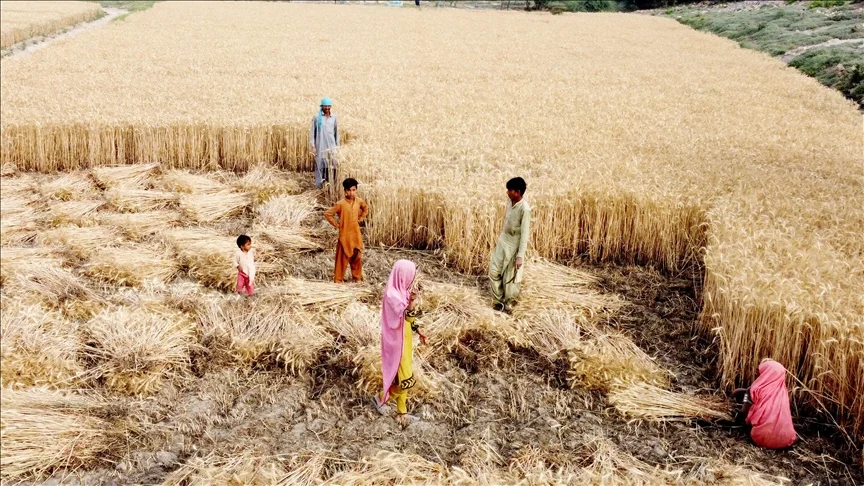LAHORE: As wheat harvesting accelerates across Punjab and Sindh, growers are facing a steep decline in market prices, triggering deep concern over profitability and long-term sustainability.
Rates have plummeted from Rs2,900–Rs3,700 per 40 kg last season to as low as Rs2,200–Rs2,390 in Punjab and Sindh, and up to Rs2,450 in KP and Balochistan.
This price crash comes amidst government withdrawal from wheat procurement, in line with IMF-mandated market deregulation.
Punjab and Sindh, which previously procured millions of tons, have opted out of buying this season, citing high carryover stocks due to over-importing by the previous caretaker government.
The federal government, following farmer protests, marginally raised its procurement target to 1.8 million tons, but growers feel exposed to market forces and price manipulation by private buyers.
Farmers warn that the lack of official procurement and strategic reserves could backfire, risking flour shortages and inflation in urban areas.
Punjab Policy
Punjab’s PML-N-led government is reportedly in talks with flour millers to assume reserve responsibilities, though the financial and logistical feasibility of such a shift remains unclear.
Adding to economic pressures, climate challenges and rising input costs have reduced yields. Farmer organizations estimate a 25–30% reduction in planted area and up to a 30% drop in production, contradicting official sowing claims.
Read More: Punjab Deregulates Wheat Under New Market Policy
The USDA forecasts a 13% national output decline for 2025–26 — from 31.5mt to 27.5mt — due to reduced acreage and persistent drought since October 2024.
Sindh growers also report significant yield losses—up to 45% in areas like Nara—blaming erratic weather, water shortages, and poor seed quality.
Also Read: Punjab’s Latest Policy Allows Wheat Farmers to Determine Prices
The unfolding situation not only threatens rural livelihoods but also poses a looming food security risk, challenging the government’s deregulation strategy as it attempts to balance IMF conditions with public discontent.









